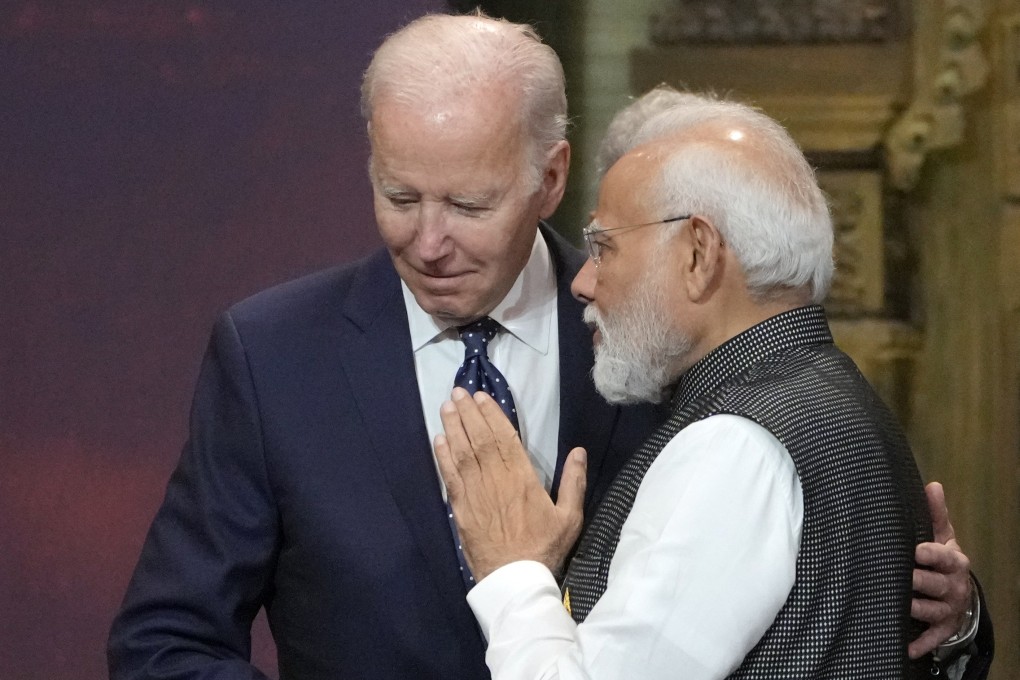US-India ties strained by Biden’s gaffes, criticism, murder plot – but ‘they need each other’
- Ties took a hit when Joe Biden called India ‘xenophobic’. Washington’s criticisms – and a failed assassination plot – haven’t helped matters either
- But analysts say Washington will ensure nothing gets in the way of its efforts to counter China’s rise by partnering with New Delhi

Analysts say there has been “a lot of noise” but the strategic capital Washington places on India as a counterweight to growing Chinese influence in the Indo-Pacific region would ensure bilateral relations do not spiral out of control and disagreements are compartmentalised.
Biden’s comments coincided with the release of the US State Department’s annual human rights report and a review by the bipartisan United States Commission on International Religious Freedom, both of which emphasised attacks on minority groups, the implementation of discriminatory nationalist policies, and the stifling of dissent in India.
“There is a lot of noise out there, but it is important not to see all of these different developments as reflections of the relationship under stress,” said Michael Kugelman, director of the Wilson Centre’s South Asia Institute.